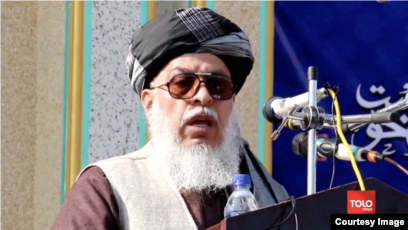In a rare public statement, Sher Abbas Stanikzai, a senior Taliban official and deputy at the Afghan Foreign Ministry, has called for an end to the Taliban’s ongoing ban on women’s education. This marks an unprecedented moment in the regime’s stance on women’s rights, as Stanikzai urged the Taliban’s leadership to reconsider the restrictive policies that have left millions of Afghan women and girls without access to education.
An Injustice Against 20 Million Afghan Women and Girls
Stanikzai, speaking at a religious school ceremony in Khost province on January 19, 2025, described the education ban as an “injustice” that affects nearly 20 million women and girls in Afghanistan. He emphasized that denying education has no foundation in Islamic law, asserting that the current policy is a result of personal choice rather than any religious or legal justification.
“We are stripping women of all their rights by closing the doors to schools and universities for them,” Stanikzai stated in his speech. His words reflect growing internal dissent within the Taliban ranks regarding the severe restrictions imposed on women’s rights. He further questioned whether the Taliban’s actions align with Sharia law, calling out the leadership for deviating from the true path of Islamic teachings.
A Historic Challenge to Taliban Leadership
Stanikzai’s remarks represent the most significant challenge to the Taliban’s policies concerning women’s rights since the group’s return to power in 2021. While he has previously made similar calls for women’s education, this is the first time he has openly appealed to Taliban leader Hibatullah Akhundzada to lift the education bans. His call is unprecedented in its direct challenge to the regime’s core policy of excluding women from educational institutions beyond sixth grade.
In his statement, Stanikzai declared that there is no legitimate excuse to prevent women and girls from pursuing education. He criticized the Taliban for maintaining policies that have long been regarded as a violation of basic human rights. The Foreign Ministry deputy stressed that the education of women should be seen as a fundamental right that is protected under both Islamic law and global standards of justice.
The Scope of the Ban and Its Impact on Afghan Society
Since the Taliban’s return to power in August 2021, Afghanistan has witnessed the systematic erosion of women’s rights, particularly in the education sector. The Taliban has barred girls from attending school past the sixth grade, and the university ban for women was implemented shortly thereafter. Reports from September 2023 further revealed that the Taliban had stopped medical training and courses for women, deepening the barriers to education and professional development for Afghan women.
The bans have had devastating consequences for Afghan women’s autonomy and participation in public life. Women are allowed to seek medical care only from female doctors, a policy that restricts their access to healthcare services, especially in rural areas where female doctors are scarce. Despite these policies, the Taliban have not confirmed the specifics of the medical training ban, leaving many uncertainties about the future of women in the medical field.
Internal Divisions Within the Taliban Leadership
Stanikzai’s remarks are part of a growing wave of internal criticism against the Taliban’s restrictive policies. Analysts have noted that his public rebuke of the leadership marks a more significant shift in the group’s internal dynamics. Ibraheem Bahiss, an analyst with the International Crisis Group, noted that Stanikzai’s comments went beyond previous statements, as they directly challenged the legitimacy of the current approach to women’s education. Bahiss added that the public nature of the remarks could signal growing divisions within the Taliban over how to address women’s rights issues.
The fact that Stanikzai chose to make his appeal at a religious school ceremony in Khost further underscores the political and ideological tensions within the Taliban leadership. The group has long used its interpretation of Islam to justify its harsh policies, but Stanikzai’s call for change indicates that some within the regime may be questioning the wisdom of this approach.
International Reactions and Calls for Accountability
Internationally, the ongoing ban on women’s education in Afghanistan has drawn widespread condemnation. Organizations like the United Nations and Human Rights Watch have repeatedly called for the Taliban to reverse its policies and allow women and girls the right to education. Malala Yousafzai, the Pakistani Nobel Peace Prize laureate, has also spoken out against the education bans, urging Muslim leaders to challenge the Taliban on this issue.
The international community has made it clear that recognition of the Taliban as Afghanistan’s legitimate government remains nearly impossible as long as the regime continues to restrict women’s rights. Countries like Russia and India have engaged diplomatically with the Taliban, but no nation has formally recognized their government. Many Western nations have maintained sanctions against Afghanistan, citing human rights abuses and the suppression of women.
Can Change Be Expected?
While Stanikzai’s call for policy change is an important development, it remains to be seen whether it will lead to any meaningful shifts within the Taliban leadership. The regime’s strict control over society, particularly women’s rights, has shown little sign of loosening. However, the growing dissent within the Taliban ranks could create the conditions for eventual change.
The question now is whether this internal criticism will be enough to prompt the Taliban leadership to reassess its policies, or whether the group will continue to prioritize its interpretation of Sharia law over the rights and aspirations of millions of Afghan women and girls. As the world watches closely, the future of women’s education in Afghanistan hangs in the balance.
Related Stories:
Afghan Taliban Refuses To Attend Muslim Girls’ Education Summit In Pakistan
Taliban’s Window Ban: Enforcing Gender Apartheid, Erasing Afghan Women
Taliban Bans Afghan Women from Nursing and Midwifery Education, Deepening Healthcare Crisis
















